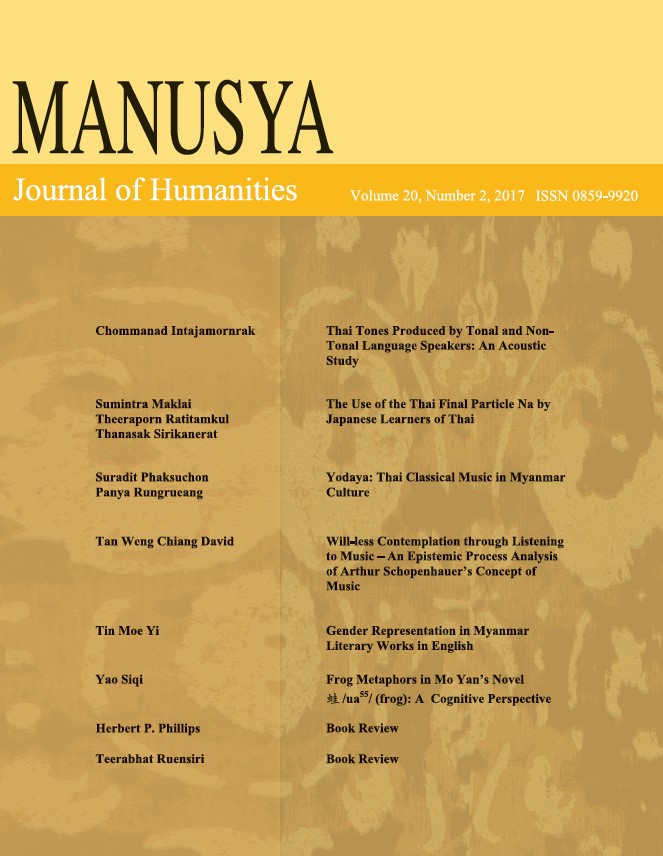Title : Frog Metaphors in Mo Yan’s Novel 蛙 /ua55/ (frog): A Cognitive Perspective
Author(s) : Yao Siqi
Pages : 122-153
Abstract in English : 《蛙》/ua55/ (frog) by the Nobel Prize
winning Chinese author Mo Yan describes
China’s changing its highly
controversial one - child policy and
system of forced abortions over the past
half-century. Frog metaphors are
omnipresent throughout the novel. The
present study aims to investigate these
metaphors within the framework of
George Lakoff and Mark Johnson’s
Frog Metaphors in Mo Yan’s Novel 蛙 /ua55/ (Frog)
123
(1980) Conceptual Metaphor Theory
(CMT) and the “GREAT CHAIN OF
BEING” system of George Lakoff and
Mark Turner (1989) to deepen our
understanding of their nature and
manifestations. Zoltán Kövecses’s (2002)
“HUMAN BEINGS ARE ANIMALS” and
“ANIMALS ARE HUMAN BEINGS” were
also considered as cognitive metaphorical
models. Moreover, the viewpoint of
“phonetic metaphor” initially proposed by
Ivan Fónagy (1999) was also taken into
account. Results were that in Mo Yan’s
work, the frog plays an essential role in
the conceptualizing conventional views of
certain areas in China. The analysis
demonstrates how a cognitive approach
offers an effective way to explore the
cognitive basis of the text’s view on the
complex relationship between the basic
human rights and the dilemmas of living
in a repressive society. This paper also
hopes to make a certain contribution to
comprehending frog metaphors in terms of
more clearly delineated concepts and
ideology reflecting China’s real society of
a one-child policy and its traditional
counter - policy notion.


